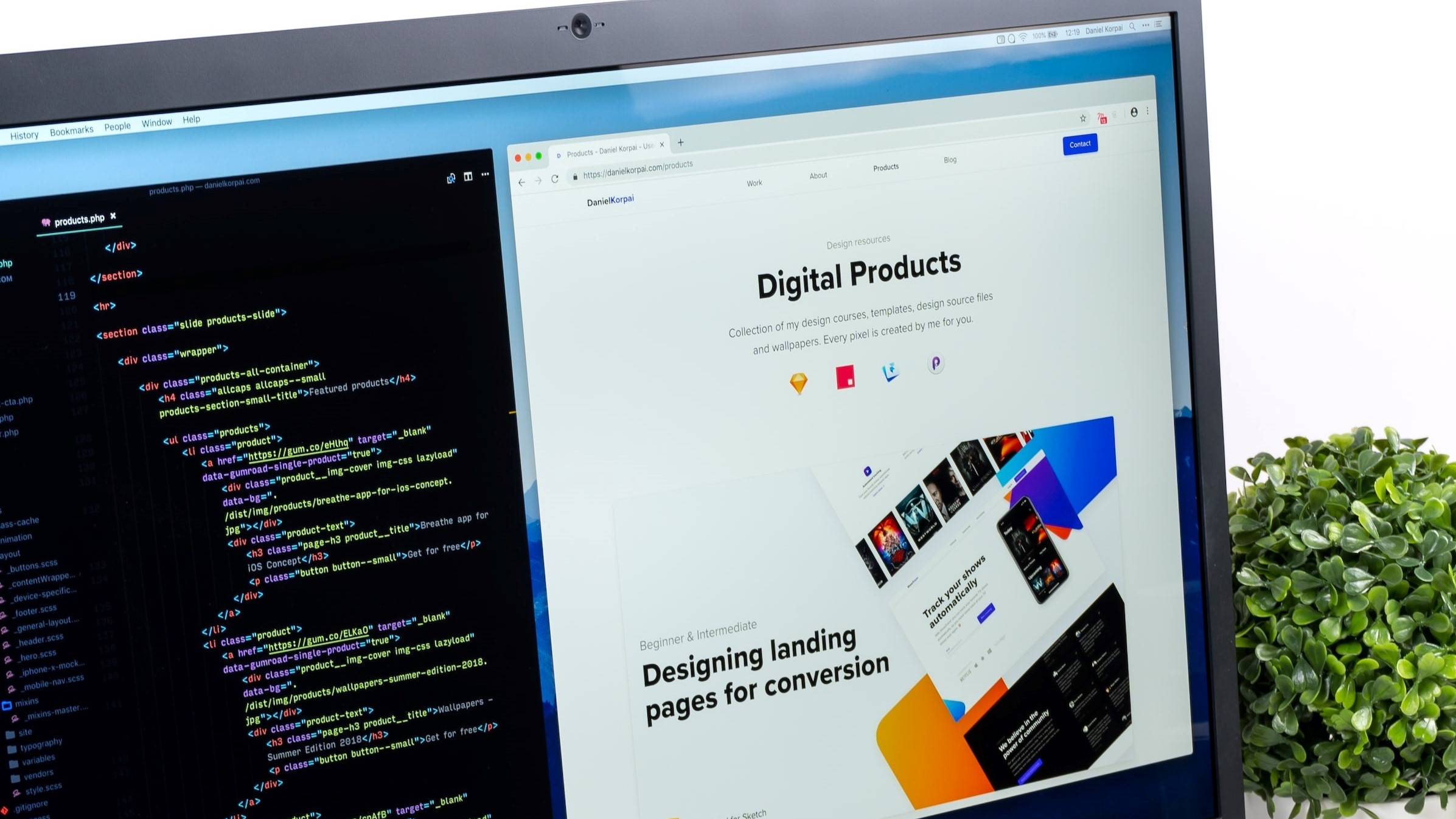
Web development in Singapore is a dynamic and rapidly evolving field. If you’re considering a career as a web developer in Singapore, it’s essential to understand the job roles and the salary range you can expect. Whether you’re exploring back-end coding or front-end design, web development is a rewarding and challenging career.
In this web development salary guide, we’ll explore the types of jobs in the web development industry, the typical salary range you can expect, potential career progression paths, and how you can get the skills you’ll need to get started.
Web Development Salary Guide: Job Roles and Salary Ranges
Web developers in Singapore are typically categorised into three roles: back-end developers, front-end developers, and full-stack developers. Each role has its specialities and responsibilities contributing to the final product – the website.
Web developers can work for a company or a web development agency. They can also be freelancers taking on ad-hoc projects from different clients. Analytical, logical people with excellent problem-solving skills and a great eye for detail can excel in a web development career.
From designing user interfaces to writing website code using a variety of programming languages to troubleshooting website problems and optimising user experiences — web developers have a significant impact in today’s digital world.
Front-end Web Developer
Front-end web developers, as the name implies, are responsible for the visual parts of a website. This includes the interface and pages visitors see and interact with. They design the layout of each page and ensure that images, graphics or videos all display and align as intended on various devices.
Front-end developers typically code using programming languages like HTML, PHP and Javascript. Job postings for front-end web developers usually ask for degrees in website design, computer programming or computer science — though these are not mandatory to perform the role. Anyone who teaches themselves how to code and design websites can be a front-end developer with a strong portfolio demonstrating their expertise.
Attending a website development course is one way to get a headstart in learning the skills needed to become a front-end developer.
Front-end Developer Salary Range
Front-end developers have a salary range of $3,000 to $8,000, depending on industry and experience level. The median salary of front-end developers in Singapore is $5,500. (Source: Glassdoor)
Back-end Web Developer
Back-end web developers code the structure of a website. If a website were a building, back-end developers build the foundations, pillars and piping that allow the building to stand and house inhabitants. They are responsible for ensuring the website can process data and perform actions as intended.
Back-end developers focus on databases, application programming interface (API), architecture, and server-side software. They typically work with programming languages such as Python, Java and Ruby.
You don’t necessarily need formal training to secure a position as a back-end developer. Many self-taught people are capable of passing tests for entry-level roles. You can consider attending a website development course to learn the basics of programming languages and build your skills. An educational computer science background is unnecessary; many employers look for a strong portfolio of development projects or relevant industry certifications instead.
Back-end Web Developer Salary Range
Back-end developers have a salary range of $3,000 to $7,000, depending on industry and experience. The median salary of front-end developers in Singapore is $6,000. (Source: Glassdoor)
Full-stack Web Developer
Full-stack developers fulfil the duties of both front-end and back-end developers. Typically, developers will start as front or back-end developers before transitioning into full-stack developers later in their careers.
Due to their complete knowledge of websites, full-stack developers are typically sought after by organisations that do not have the budget for large teams. They can also be sought after as consultants or leaders to oversee projects to ensure that a website’s front and back-end functions work optimally together. This also means they need to be proficient in front and back-end programming languages.
If you’re undecided on whether you want to focus on becoming a front-end, back-end or full-stack developer, attending a website development course can help you get to grips with the ins and outs of each role so you can make an informed decision.
Full-stack Web Developer Salary Range
Full-stack web developers have a salary range of $4,000 to $9,000, depending on industry and experience level. The median salary of full-stack web developers in Singapore is $6,000. (Source: Glassdoor)
Web Development Salary Guide: Summary
| Job Title | Median Salary | Salary Range |
| Front-end Web Developer | $5,500 | $3,000 – $8,000 |
| Back-end Web Developer | $6,000 | $3,000 – $7,000 |
| Full-stack Web Developer | $6,000 | $4,000 – $9,000 |
(Source: Glassdoor)
How do you start a career in web development?
As our daily lives increasingly become increasingly digital, web developers have some of the most sought-after skills, no matter the industry. Becoming a web developer can be a lucrative and rewarding long-term career.
Web developers are directly responsible for creating the primary online presence for a business. Their code can differ between a fast- or slow-loading website and critical online business functions.
Many people who want to make a career switch to become web developers can be daunted by the need to learn code. However, there are a plethora of online resources, such as courses and boot camps intended for absolute beginners with no prior coding experience available. These can help you get some experience with web development projects.
If you’re not ready to dive into the world of coding but are still interested in web development, consider taking up a website development course that specialises in co-coding website builder platforms like Shopify or Wix. You’ll be able to learn valuable knowledge like best practices for user interface design and user experience that’ll set you up for success when building a website.
Learn In-person at FirstCom Academy
If you want to develop a website, why not learn from industry veterans at FirstCom Academy? Our courses are ideal for busy professionals looking to upgrade their careers by learning in-demand skills taught in a progressive, easy-to-understand and actionable manner.
Explore FirstCom Academy’s range of WSQ-certified website development courses:
- Build Your Online Presence Using WIX
- Build Profitable E-commerce Websites Using WIX
- Build a Highly Converting E-commerce Website with Shopify
Frequently Asked Questions:
What programming languages should I learn first as a beginner?
HTML, CSS and JavaScript are universally useful languages to start with as they are the core languages for front-end development. Learning at least one server-side language like Python or PHP will also help expand your skills.
What's the difference between a web designer and web developer?
Web designers focus more on visual design and user experience, using tools like Photoshop. Web developers do the actual coding to build and maintain websites. Many roles now require both design and development skills as full-stack developers.
How long does it take to see a return on investment from a coding bootcamp?
Most people see a return within 6-12 months after completing a bootcamp as they gain skills employers are willing to pay for. The quicker you can land a job, the faster you'll earn back the costs through your new salary. Experience and connections gained also boost your long term career prospects.
What are some career progression paths for web developers?
Common paths include becoming a senior developer with team lead responsibilities, moving into technical project management, pursuing specializations like UX design, transitioning to a software engineering role, starting your own development agency, or teaching/training other developers.
Read also:
- Jobs in Singapore: Social Media Marketing Salary Guide
- 8 Best Resources For Learning Wix Web Design
- Learn How to Setup and Manage a Wix Website


